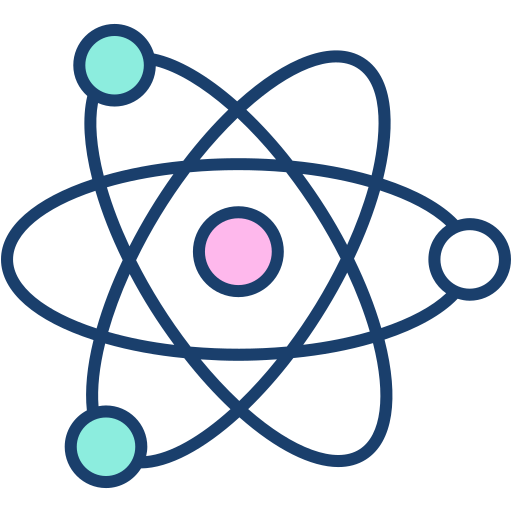What is the SI unit of frequency?
Hertz (Hz)
Joule (J)
Newton (N)
Pascal (Pa)

Units of frequency measure how often an event occurs in a specific amount of time, typically in seconds. The base unit of frequency is the hertz (Hz), which represents one cycle per second.
Definition: The base unit of frequency in the International System of Units (SI), representing one cycle per second. It measures how often an event happens over time.
Common Use: Used for describing the frequencies of audible sounds, and electrical signals.
Definition: Equivalent to 1,000 hertz.
Common Use: Often used in radio frequency equipment, audio signals, and lower frequency electromagnetic waves.
Definition: Equal to 1,000,000 hertz or 1,000 kHz.
Common Use: Commonly used to describe the frequencies used in FM and TV broadcasting, as well as in the field of telecommunications like mobile phone frequencies.
Definition: Equal to 1,000,000,000 hertz or 1,000 MHz.
Common Use: Typically used to describe the clock speeds of computer processors and the frequencies of microwave frequencies, including those used for cellular telephone signals.
Definition: Equal to 1 trillion hertz (1,000,000,000,000 Hz).
Common Use: Terahertz radiation is utilized in scientific research, particularly in imaging and spectroscopy for materials science, security scanning, and biomedical applications.
Definition: Equal to 1 quadrillion hertz (1,000,000,000,000,000 Hz).
Common Use: These frequencies are primarily of interest in ultrafast science where researchers study the extremely fast processes such as the dynamics of chemical reactions and quantum physics phenomena.
Definition: Equal to 1 quintillion hertz (1,000,000,000,000,000,000 Hz).
Common Use: Not commonly used in practical applications but can describe theoretical studies and high-energy physics, including some forms of gamma radiation.
Definition: Represents frequencies in the order of 10^21 hertz.
Common Use: Like exahertz, this unit is not used in everyday applications but can relate to frequencies observed in astrophysical phenomena and some theoretical models.
Definition: The largest frequency unit, representing 10^24 cycles per second.
Common Use: This unit is mainly theoretical and used in scientific research that explores the highest possible frequencies, far beyond the electromagnetic spectrum commonly used in technology today.
| Frequency Unit | Equivalent in Hertz (Hz) |
|---|---|
| Kilohertz (kHz) | 1 kHz = 1,000 Hz |
| Megahertz (MHz) | 1 MHz = 1,000,000 Hz |
| Gigahertz (GHz) | 1 GHz = 1,000,000,000 Hz |
| Terahertz (THz) | 1 THz = 1,000,000,000,000 Hz |
| Petahertz (PHz) | 1 PHz = 1,000,000,000,000,000 Hz |
| Exahertz (EHz) | 1 EHz = 1,000,000,000,000,000,000 Hz |
| Zettahertz (ZHz) | 1 ZHz = 1e21 Hz |
| Yottahertz (YHz) | 1 YHz = 1e24 Hz |
Text prompt
Add Tone
10 Examples of Public speaking
20 Examples of Gas lighting
What is the SI unit of frequency?
Hertz (Hz)
Joule (J)
Newton (N)
Pascal (Pa)
Which unit is equivalent to one cycle per second?
Joule
Hertz
Newton
Watt
What does the unit "Hertz" measure?
Force
Energy
Frequency
Pressure
If a wave has a frequency of 50 Hz, how many cycles occur in one second?
5 cycles
50 cycle
500 cycles
5000 cycl
Which of the following is not a unit of frequency?
Hertz (Hz)
Cycles per second (cps)
Kilohertz (kHz)
Newton (N)
Convert 1000 Hz to kilohertz.
1 kHz
10 kHz
100 kHz
1000 kHz
What is the unit for frequency in the CGS (centimeter-gram-second) system?
Dyne
Erg
Hertz
Gauss
If the frequency of a sound wave is 0.5 kHz, what is it in Hertz?
50 Hz
500 Hz
5000 Hz
0.5 Hz
Which unit of frequency is commonly used to describe radio waves?
Hertz
Kilohertz
Megahertz
Gigahertz
What is the frequency of a wave with a period of 0.01 seconds?
100 Hz
10 Hz
1 Hz
0.1 Hz
Before you leave, take our quick quiz to enhance your learning!

